Near Southsiders are planning for the biggest Pride month yet with dozens of bars and restaurants preparing to raise money for LGBTQ+ charities. Proceeds from select Bearded Lady cocktails, for example, will support The Trevor Project, a nonprofit that works to prevent suicide among queer youths.
Capping off the month’s festivities will be the annual Trinity Pride Fest — Saturday, June 24, at Magnolia Green Park (1201 Lipscomb St) — which will feature live music from queer musicians, plus food trucks, artisan vendors, and other activities.
Several Near Southside business owners privately disclosed a mix of excitement and trepidation about this year’s fest, given the openly hostile rhetoric from local and state-level Republican leaders against the LGBTQ+ community.
County Judge Tim O’Hare recently targeted the Near Southside when he asked State Comptroller Glenn Hegar to investigate a March drag show at Tulips FTW, a Near Southside music venue. In the letter, O’Hare alleges the performers that evening “exposed themselves” to children in attendance even as the drag queens and audience members have publicly rebuked O’Hare’s allegations that the all-ages show featured sexually explicit performances.
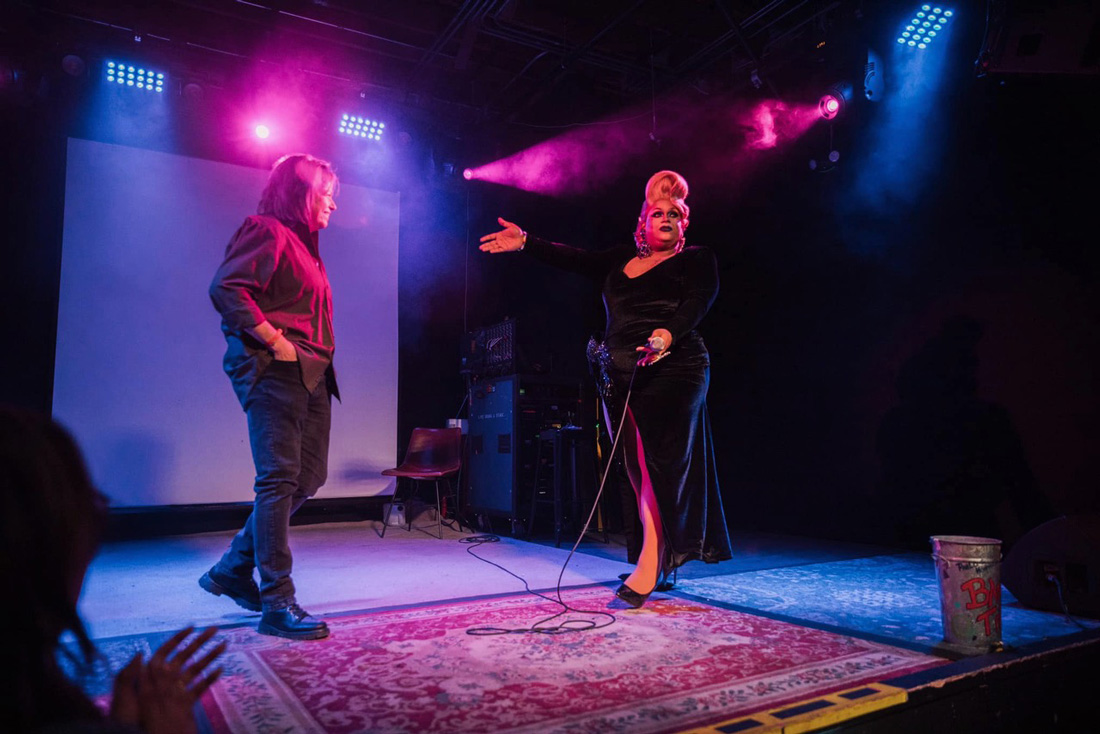
Photo courtesy Facebook
The night’s headliner, Salem Moon, wore several layers of clothing during her performance as a precaution against the types of right-wing misinformation that O’Hare is known for spreading. In his letter, O’Hare asks Hegar to investigate whether the venue is operating as a sexually oriented business, which would potentially malign the venue’s public reputation.
Responding to O’Hare’s Facebook post about the letter, one Denton mother pushed back on the county judge’s assertions.
“Have any of you been to a drag show?” the mother said. “Not one of these performers would show their junk to the audience. Do you have any idea of how many layers of bindings and spanks they have on?”
Tulips owner-founder Jason Suder declined to comment on this story.
O’Hare is part of a broader right-wing effort to demonize drag queens to further oppress non-straight non-Christians. The Texas House recently advanced Senate Bill 12, which creates criminal and civil penalties for venue owners who allow sexually oriented performances in the presence of a child. Many queer allies see Republicans as falsely equating strip clubs to theatrical performances like drag.
O’Hare’s political stunts have done little to dampen the commitment of business owners along West Magnolia Avenue and South Main Street on the Near Southside to provide safe and affirming environments for trans youth, gay patrons, and members of the queer community. Bearded Lady owner Shannon Osbakken said now is the time for local elected officials, business owners, and area stakeholders to recognize something that is clear to many: The Near Southside’s economic success and cultural vibrancy is largely due to its unapologetic embrace of the LGBTQ+ community and acceptance of folks from all walks of life.
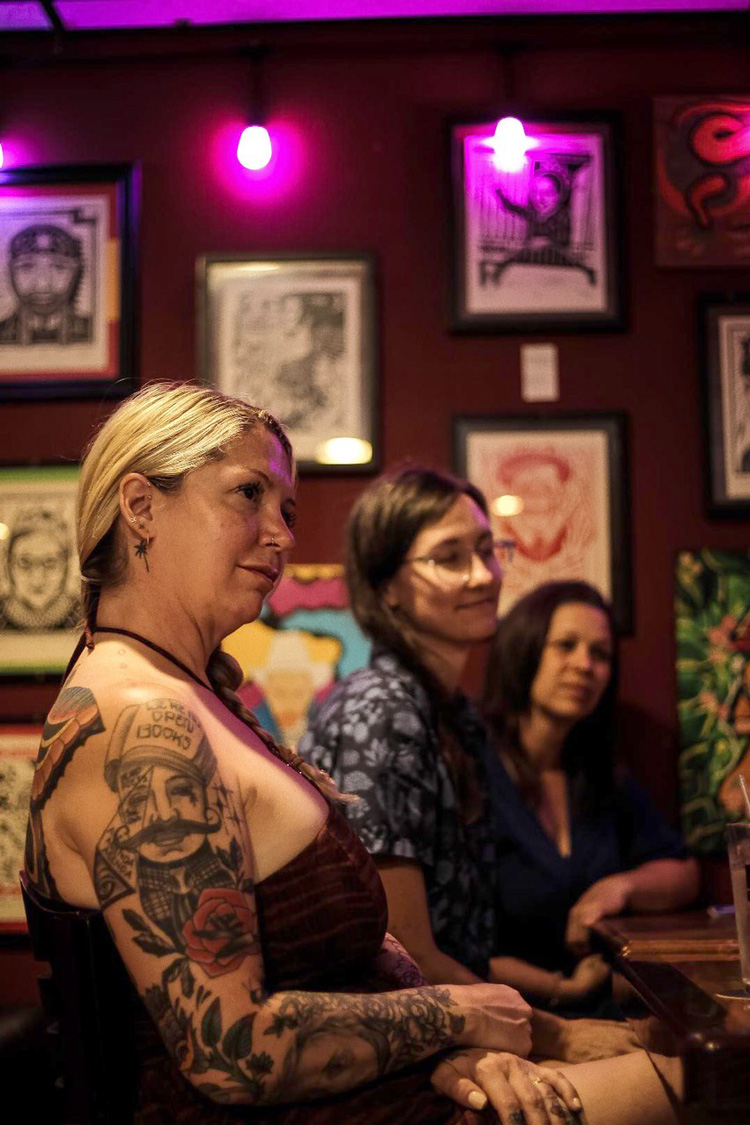
Photo by Agustin Gonzalez
“It’s no coincidence that our community is the most open-minded, liberal, and inclusive, and it is drawing people from all over the Metroplex,” Osbakken said. “Hopefully, that will be taken into consideration when businesses are being attacked.”
Mike Brennan, president of Near Southside Inc., the nonprofit tasked with revitalizing the district and organizing community events, said the community has long been diverse and accepting.
“At Near Southside Inc., we’ve seen firsthand how this inclusive community spirit is an important economic asset, helping to attract so many new residents and businesses,” he said.
To further dive into the history of the Near Southside’s queer-friendliness and ongoing commitment to present drag shows, music, and art that celebrates the lived gay experience, we gathered Samantha Jo Glenn (co-owner of Funky Picnic Brewery & Café), Rachel Gollay (singer-songwriter, queer activist), Jenna Hill-Higgs (Liberty Lounge owner, social activist), Osbakken, and Evan Michael Woods (Amphibian Stage marketing director) at Hill-Higgs’ Liberty Lounge for a roundtable discussion.
Describe your work advocating for LGBTQ+ rights and/or programming events that support the LGBTQ+ community.
Glenn (Funky Picnic): Our biggest events are our drag shows. We have drag brunch once a month and Drag After Dark, which is a late-night Friday show. We’re at two years of hosting drag shows. That’s one of our biggest programming events.
Gollay (musician, activist): I volunteer as a program leader with LBGTQ SAVES, which provides safe and brave spaces for youths ages 12 through 24. That’s been meaningful work, especially given the current legislative landscape in Texas. I’m about to start a job with a Jewish LGBTQ-focused nonprofit. I’ll be doing that as my day job focused on community engagement and mobilization.
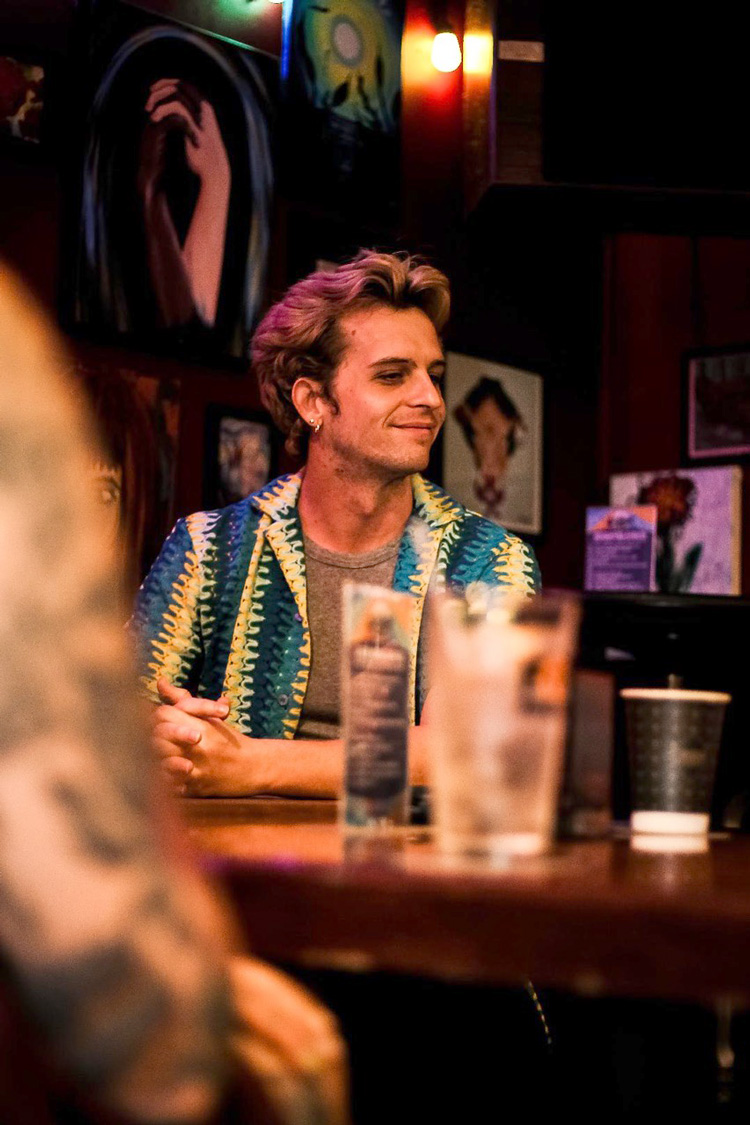
Photo by Agustin Gonzalez
Osbakken (Bearded Lady): We’ve had quite a few drag shows. In June, we’re decking everything out for Pride. We’re doing Pride brunches every weekend. I try to create a safe space for anyone to come work or come to visit. Probably more than half of our staff is part of that community. Basically, if you are not supportive, you are not going to fit in with the restaurant. It’s something we prioritize there.
Woods (Amphibian Stage): At Amphibian Stage, we make a conscious effort to hire queer artists to be a part of the stories we tell onstage and make a conscious effort to highlight queer stories. We started a community nights program that are select performances of our mainstage show. [We offer] pre- and post-show opportunities so like-minded individuals [can] share their love of the performing arts. This summer, as part of that idea of championing queer stories, we are producing a queer riff on The Importance of Being Earnest that I am directing. We are excited to tell that story, especially at this time.
What role does the Near Southside play in providing a safe space for the LGBTQ+ community, and why is that important to you?
Glenn: I’m a cis straight white woman, so I’m not personally a part of the queer community. For me as a business owner, I try to create a space that is welcoming of everybody. I’ve taken feedback from the community, like adding trashcans in the men’s restroom. I’ve had people say, ‘As a man who used to have a period, I appreciate that.’ Our staff has represented all of the letters of LGBTQ. I’ve had an employee going through a transition whom we sat with. ‘I started hearing this new name and new pronouns,’ I told him. ‘Let me take the lead in changing this on your online profiles with the company and setting the tone with the staff.’ If we do have issues come up with protests or angry social media comments, I know I’m in a community that has the same viewpoints. We are all in this together. That can mean continuing the fight rather than giving in to the haters.
Gollay: This area has so much queer history to it. The first gay bar I went to was Hot Shots, which became the Rainbow Lounge. We had a time. It is so important to have venues like that where the support for the queer community is not conditional. That’s important now in the political climate we’re in, where you see big brands capitulate to people who are trying to terrorize us out of who we are. To know there are local businesses and communities supporting us in that way means that we are stronger together and able to weather these storms.
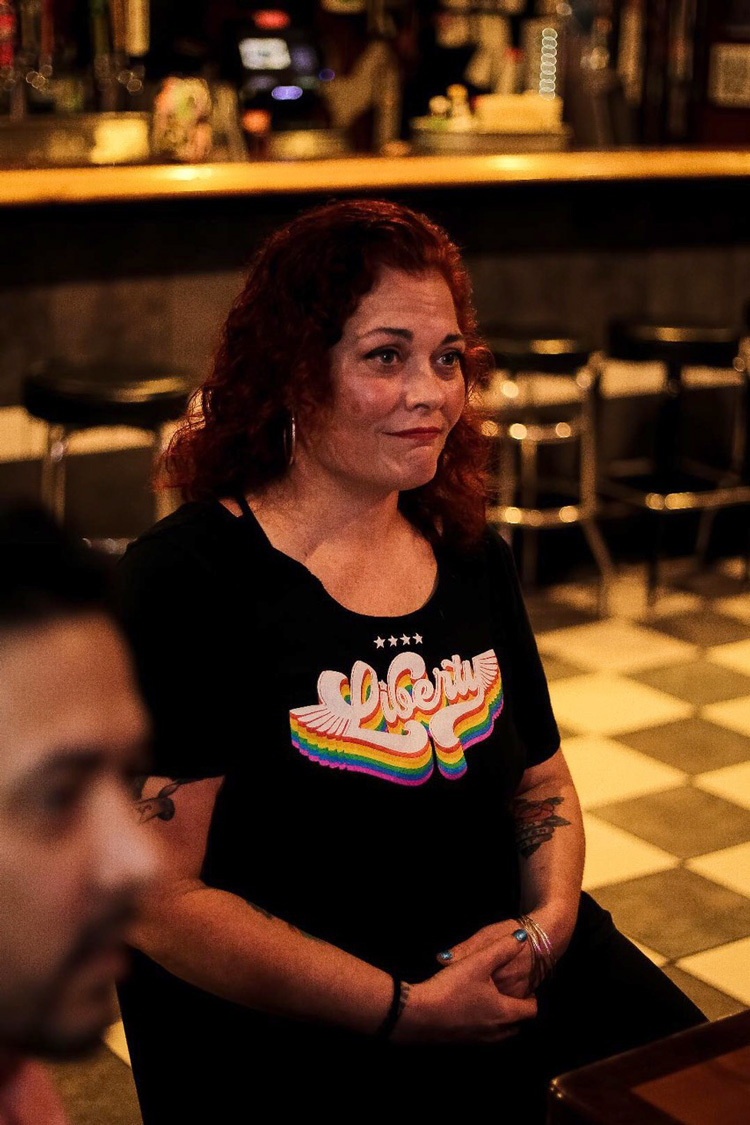
Photo by Agustin Gonzalez
Hill-Higgs: I love this area. I can’t seem to leave it. I’m a firm believer that we meet hate with empathy and give them grace. It’s hard sometimes. It would be easy for us to meet that ugliness with grrrr. Doing what I get to do now fills my bucket. It goes back to that concern of not wanting anybody to be alone. The straight people who hang out at this bar are our allies. They see us as human, so our issues become real. When it comes down to a political vote, after they have had a drink with us, [it’s that much harder to vote against us]. It is powerful when you know you have a place where you belong.
Osbakken: I believe that in a mostly conservative city, our niche community is really the only space where anyone in the LGBTQ+ space can feel completely safe. Anyone who lives and works in this community will not put up with any hate, bigotry, or discrimination. By being vocal about it, we created a safe space. So many businesses have pride flags hanging up. It is important and creates a draw to our neighborhood.
Woods: As a queer person navigating this neighborhood and other parts of this city, even if overnight all the pride flags vanished and I couldn’t use that as a marker, I still generally feel that I don’t have to pick and choose or dodge parts of this neighborhood. We have this expectancy on how folks operate with the queer community. If that is not something you are not going to do, then you are not going to fit in. That’s how the Near Southside feels. It is that explicit queer component and all the businesses that are doing the work that make queer people feel welcome.
The Near Southside is an economic powerhouse within Tarrant County and a huge draw for visitors and locals alike. Do you see a connection between the district’s growth and the broader community’s commitment to supporting gender diversity?
Glenn: Visit Fort Worth does a good job of trying to bring more visitors and tourists to Fort Worth. All of those people aren’t going to be straight. It helps that [the queer community] can do a pretty easy search for a welcoming neighborhood, especially when they hear all of these stories about how Fort Worth is more conservative and all of the legislation being pushed in Texas. For us, our drag shows [at Funky Picnic] give us a packed house. If I can have a full house on a Saturday morning, that’s going to help my business. That will help the broader neighborhood. We employ around 30 people.
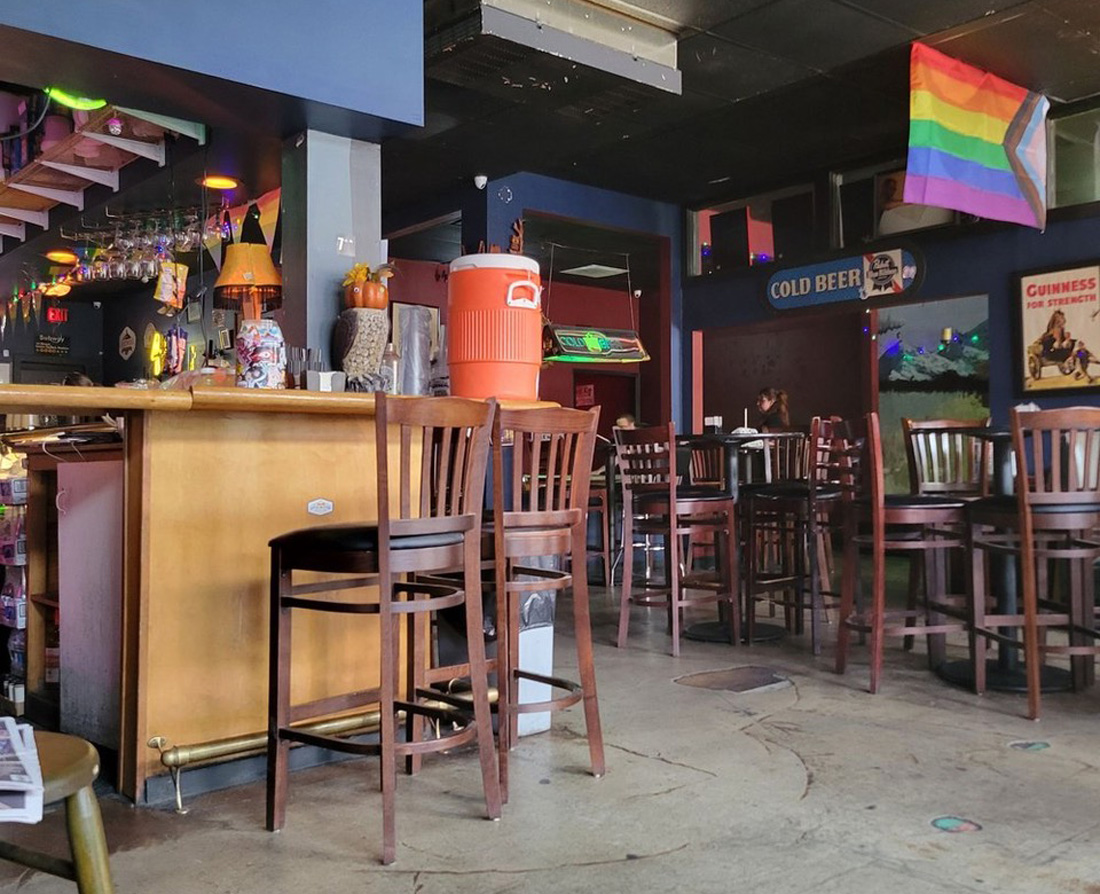
Photo courtesy Yelp
Gollay: For business owners who are motivated solely by profit and the bottom line, I don’t think that they are truly going to be the kinds of committed allies that we need. I think it needs to start with something more authentic, like these folks in the room right now who know this is just the right thing to do. And as a bonus, it does make business sense. It is better for the bottom line, but it starts by building community and solidarity in a real way. I also hope people with power and deep pockets are watching how this plays out. There are more of us united who want to support drag shows and LGBTQ-affirming spaces than don’t, and that includes lots of cis straight folks.
Hill-Higgs: I don’t know if it was the best business plan, but I had three things I wanted to do when I opened Liberty Lounge. First, I want to give back to my community because I’m in a unique spot. This is the neighborhood that helped raise me. I’m grateful for everything I received. When I was an actor in my 20s, there were certain drag queens who would give me jobs when they did a show, and they would pay me when I wasn’t really doing a lot. They were trying to help me make my rent. When I opened Liberty Lounge, I knew I could never give back as much as I received. My partner has been in business around here from the beginning. He saw it when it was still desolate. I love the growth. The people who have businesses here have that commitment. We are given the power in the Near Southside to not only provide a drink and a show but to give them something back, that acceptance and joy. I hope that when people read this, they realize that every time things have come to a vote, we see less than 50% of people show up. Every voice matters. You have to vote. It’s one of the ways we get seen and heard. There are powers-that-be that don’t want queer spaces. I don’t understand why. We’re just humans who love each other.
Osbakken: I hope that [the success of the Near Southside] will create a more inclusive city. I definitely think that it has always been a draw for our city and will continue to be. I hope we continue being the safe place for everyone to come and that we are an economic powerhouse in the Metroplex.
Woods: I’ve been thinking about this in the context of our theater that is bringing quite a bit of stand-up comedians and theater artists from across the country. For the most part, everyone who has come from New York and California has had a great time. If we didn’t have the [Near Southside] community here, we’d be losing artists, headliners, and butts in seats. Culture equates to dollars.



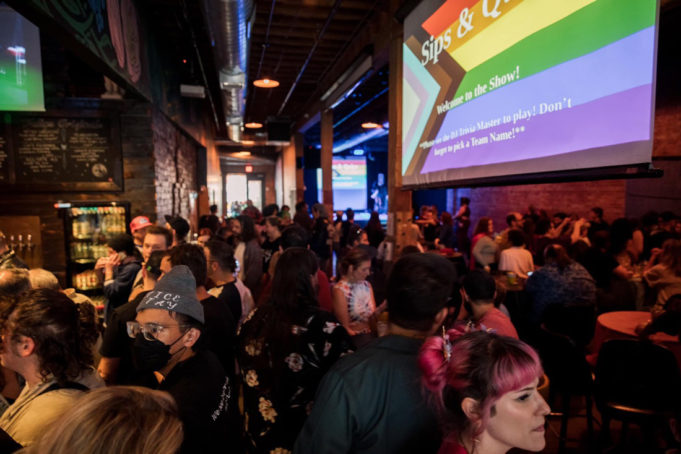

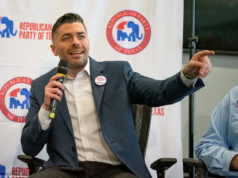

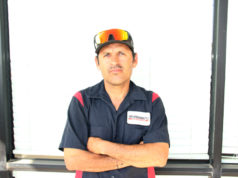





I ran a decently popular local web site for years and wrote for the Weekly, all of which I spent closeted. The Near Southside was the only place I really felt comfortable.
I moved far away so I could come out and be myself. The attitudes of some people in power in Fort Worth, and some extremely misguided people who think queer people are some kind of evil force, are ensuring I will never return to the city that was my literal home.
Good riddance. We’re better off without.